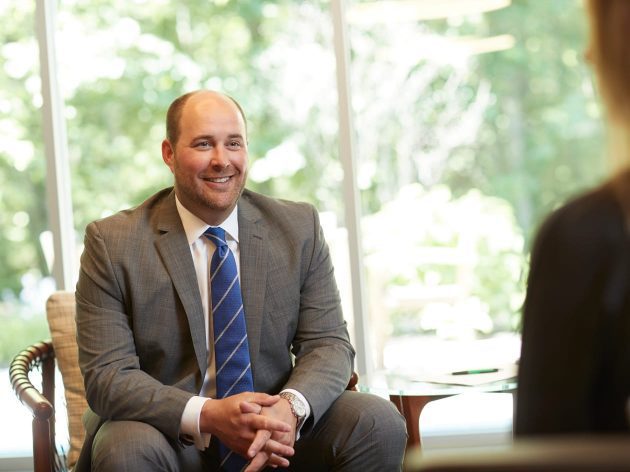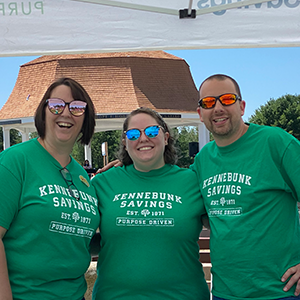Jump to:
We’ll help you find the right home and property insurance
We live here too, so we share a bond when it comes to protecting our homes and communities. Let’s sit down and see what you might need. A policy could include:
- Home
- Garage, shed and other structures on your property outside your home
- Personal property
- Loss of use
- Personal liability
- Umbrella insurance
- Flood insurance

Helpful terms to know
Before you purchase insurance, learn some common terms you’ll find in a homeowner’s policy.
Your home is your safe haven, so it’s hard to imagine it at risk. But property insurance provides crucial financial protection from unfortunate events we don’t like to think about.
Events it covers
Theft, fires, or storms that could disrupt your life and your peace of mind.
Coverage details
In addition to in-home items like jewelry and electronics, this insurance coverage pays to replace or repair properties adjacent but not attached to your home like a detached garage and sheds.
It also includes “loss of use” coverage, so in the event you’re unable to live at your home due to a loss like fire or weather damage your temporary living expenses are paid for.
An unexpected incident on your property could disrupt your financial life, and your home could be on the line in a lawsuit.
Events it covers
What if your dog bites the mailman? Or a friend slips on the ice in your walkway or falls down the stairs in your home? Liability covers this kind of circumstance.
Coverage details
While unintentional, these scary situations could leave you responsible for thousands of dollars in medical bills. Liability insurance protects you and all of the family members who live with you.
Extra preparation is always a good thing, an Umbrella policy goes above and beyond what regular homeowners and auto liability insurance cover when the unexpected happens.
Events it covers
Umbrella policies can cover injuries, lawsuits, and personal liability beyond the limits of the policy you may already have, and for different situations than what the policy may already cover.
Coverage details
Traditionally umbrella coverage can be purchased in $1 million increments.
Home and Property FAQs
Common insurance questions
What does homeowner’s insurance protect me against?
Homeowner’s policies consist of property and liability insurance to give you maximum peace of mind.
Property insurance covers damage done directly to your home. A fire or a weather event like a windstorm which forces a tree to collapse on your roof would qualify.
Liability insurance leverages your home as a part of the policy coverage. It protects you in situations both on your property and outside of your home. For example, if you have a bike accident and injure the other person, liability insurance provides coverage for the medical costs.
What doesn’t homeowner’s insurance protect me against?
Homeowner’s insurance isn’t a catch-all. For example, flood and earthquake damage aren’t covered but you might be able to find additional policies to add on. Neglect that causes damage like a leaky roof isn’t covered. And of course, intentional loss isn’t either.
Other items that might not be covered include:
Increase in material costs. Building codes established by governmental bodies may require higher costs for materials during rebuilding or repairing after a loss occurs. These won’t be covered. For example, if you’re replacing damaged property and learn that current law demands higher grade or more expensive materials than the original ones, the new materials may not be covered for the full price.
Building code upgrades. If you’re replacing all the wiring in your home due to a fire or other event and the current building code in your area requires a higher grade of electrical wiring, your policy may cover only the cost of replacing the older wiring. The difference in cost between the old wiring and the new wiring required by ordinance or law is your responsibility.
Am I protected if I’m sued or found liable for the injury of another person?
In most cases, yes. The liability component of homeowner’s insurance protects you in situations that cause bodily injury or damage to others. For example: If your dog bites your neighbor, and your neighbor sues you for the medical expense payments, liability insurance provides coverage.
If I have a separate in-law suite on my property, is that covered?
Your homeowner’s policy probably covers it if a member of your family is staying there. However, your family member needs renter’s insurance for any of their personal items on the property.
I work from home. Are my inventory and business property covered?
Under most circumstances, no. Accidents that occur while you earn revenue are distinct from any residential events.
Is the backyard shed both covered in my homeowner’s policy?
Yes, they’re both your property so they’re covered.
The value of the real property—your home, garage, shed, and other structures—is generally based on the value of the house itself. So, if the house were insured for $300,000, the shed, detached garage and other auxiliary structures would be covered for 10 percent or $30,000 worth of damages in most cases.
Additional property protection features may include living expenses if your home isn’t livable during the time it takes to rebuild or repair.
Is my personal property covered?
Yes. Imagine you could turn your house upside down and shake it. Almost everything that falls out of the house is covered including clothes and electronics. Jewelry can be covered but may need to be listed or scheduled separately.
Personal Property is usually calculated as a percentage of your home coverage. While your policy carries a limit you have the option to purchase higher limits for both real and personal property.
Common insurance questions for renters and landlords
I rent out my basement. Are my tenants covered by my homeowner’s policy?
No, tenants are not covered. Encourage your tenants to have renter’s insurance because your policy covers your property and the structure only. Your property covers your liability, not theirs. If your tenants have renter’s insurance, then their possessions and liability are covered by their policy.
I am a renter, not a homeowner. Do I need insurance?
The same rule of thumb applies to renters as to homeowners. Renter’s insurance protects your possessions and your assets. If you were sued, the liability protection in renter’s insurance helps you pay legal fees and possibly settle the suit.
If I’m a renter, isn’t my apartment covered under my landlord’s policy?
No, the landlord’s insurance covers damage to the building and the landlord’s liability only. Plus, you may be liable for any damage you cause to the building, depending on the wording in your lease. For example, if you go out and leave the stove on and a fire causes extensive damage to the building, you may be held liable to the landlord.
Is renter’s insurance expensive?
No. Renter’s insurance is surprisingly inexpensive. A local Kennebunk Savings agent can help you find the best combination of coverage and cost.
I own a condo. How is my policy different?
A condo owner’s insurance is about the same as the homeowner’s details outlined here.
Usually, the condominium association buys insurance to cover the property (building and structures) and liability coverage for the general association. If you own a condominium unit, you may be responsible for protecting the “walls in” on your unit. That includes your personal property and the interior of your unit (whatever area is excluded from the condo association’s policy) as well as for your personal liability.
Sometimes, condo owners are assessed by their condo association for losses “outside the walls” that were not entirely covered by the association’s policy. For example, if the clubhouse is destroyed and the condo association did not have it insured, you could be assessed for a “share” amount needed to replace it. You can check with your agent about adding such “loss assessment coverage” to your condo owner’s policy.
Want to talk about your insurance options?
You can request a quote now or give us a call to discuss your options at 1-800-794-2941.
